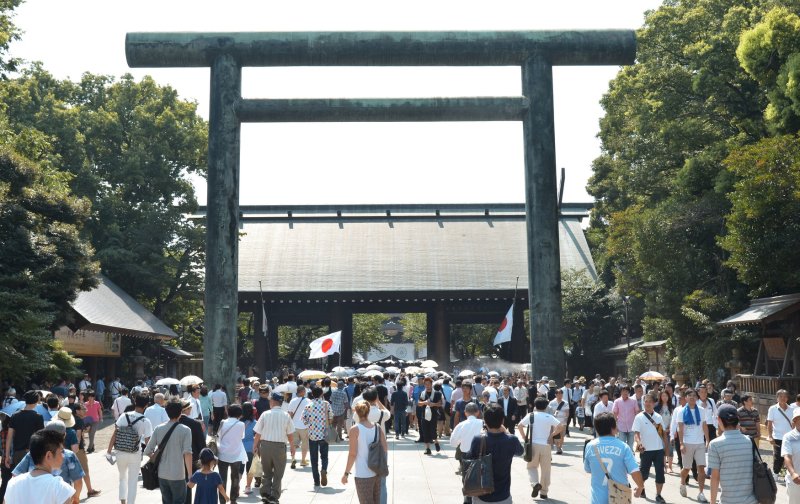Visitors enter the Yasukuni Shrine in Tokyo, Japan, on Aug. 15. China and South Korea scolded Japanese officials for a Sunday visit to the controversial shrine dedicated to the war dead. File Photo by Keizo Mori/UPI |
License Photo
TOKYO, Oct. 19 (UPI) -- China and South Korea scolded Japan after top officials in Tokyo visited a controversial shrine dedicated to the war dead.
Internal Affairs and Communications Minister Sanae Takaichi and Justice Minister Mitsuhide Iwaki had paid tribute to Japan's soldiers at Yasukuni Shrine on Sunday, a day after Prime Minister Shinzo Abe had sent an offering, Kyodo News reported.
Abe may continue to refrain from visiting the shrine during its annual autumn festival ahead of a trilateral summit to be held in Seoul in November.
Relations with China and South Korea have cooled in recent years, and China's state news agency Xinhua condemned the visits, and said Japanese politicians visiting Yasukuni "have caused tensions in Japan's diplomatic relations with Asian countries," the Asahi Shimbun reported Monday.
In Seoul, a South Korean Foreign Ministry spokesman said the two ministers' visits and Abe's ritual offering are "tantamount to glorifying Japan's forcible colonization and war of aggression."
"It runs counter to the efforts of the Republic of Korea to improve its relations with Japan, including holding an ROK-Japan-China summit meeting," the spokesman said.
Japan's ruling party politicians, however, are committed to remembering the war dead out of patriotic duty.
Iwaki, the justice minister, said the visits are a way to express "gratitude to the souls of the war dead who fought for the country," and added that such respect "should be paid in each country according to its own tradition."
Takaichi told reporters the visits matter for Japan's future.
"How the last war is viewed by future generations should be considered separately from consolation for the war dead. It is a matter that has nothing to do with diplomatic relations," she said.
The shrine honors Japan's former Prime Minister Hideki Tojo, who was hanged in 1948 by the International Military Tribunal for the Far East, and other convicted Class-A war criminals.















